The effects of vitamin C on the multiple pathophysiological stages of COVID-19
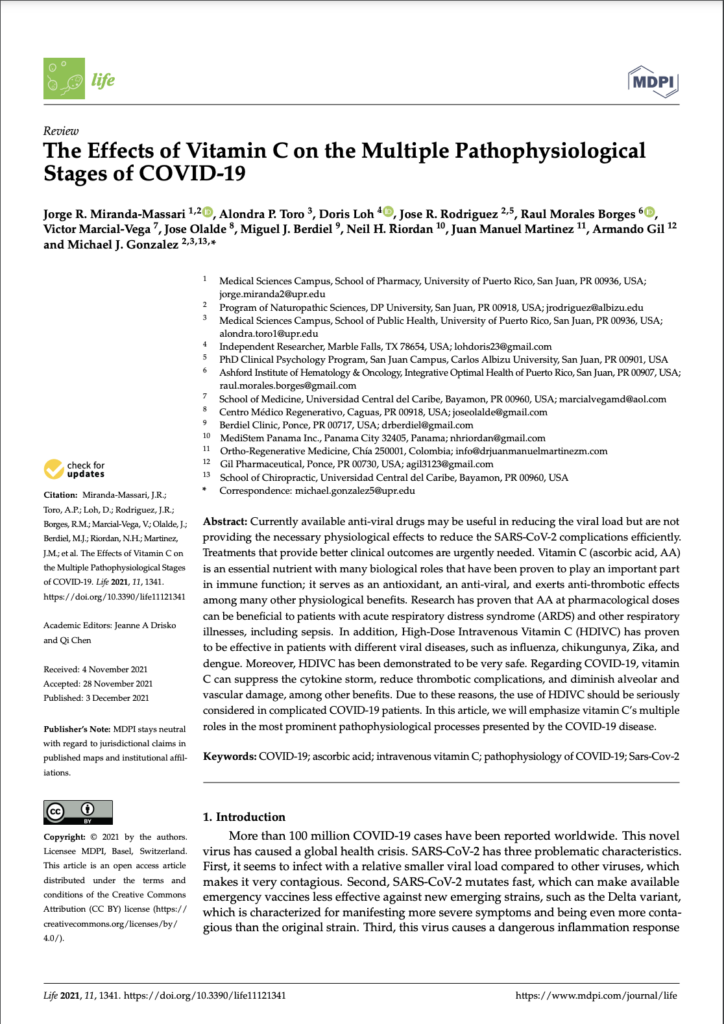
12/1/2021 Life (Basel). 2021 Dec 3;11(12):1341 Miranda-Massari JR, Toro AP, Loh D, Rodriguez JR, Borges RM, Marcial-Vega V, Olalde J, Berdiel MJ, Riordan NH, Martinez JM, Gil A, Gonzalez MJ. Currently available anti-viral drugs may be useful in reducing the viral load but are not providing the necessary physiological effects to reduce the SARS-CoV-2 complications…
Schedule Dependence in Cancer Therapy: Intravenous Vitamin C and the Systemic Saturation Hypothesis.
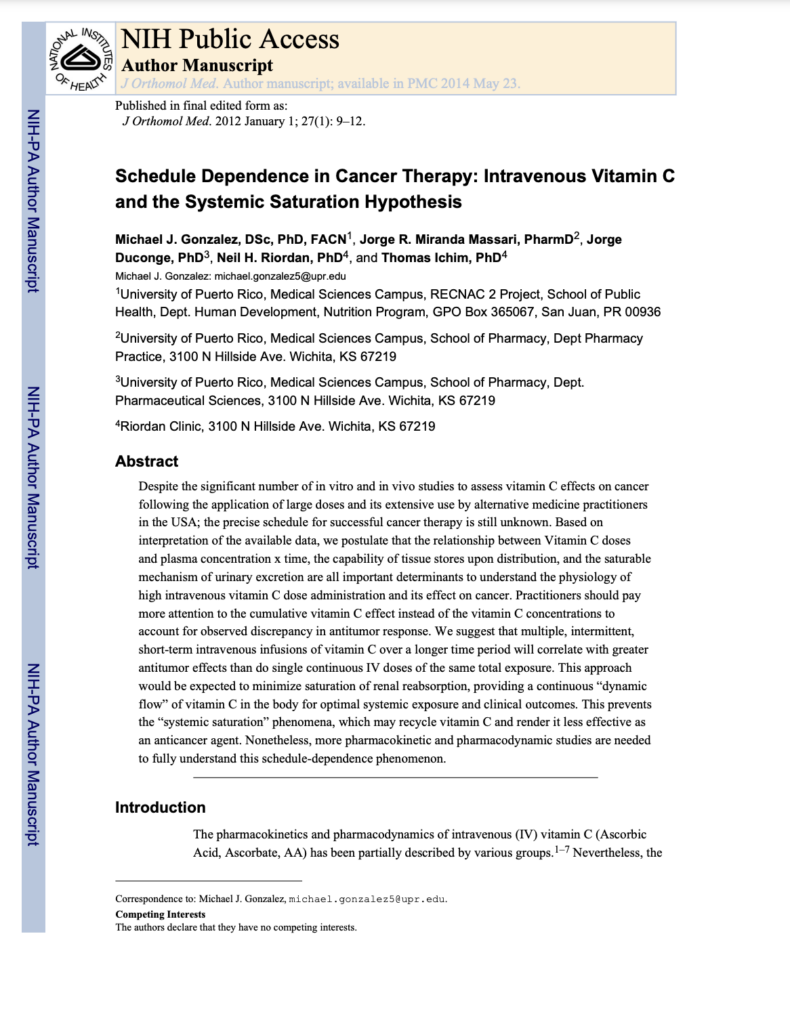
1/1/2012 J Orthomol Med. 2012 Jan 1; 27(1): 9–12 Gonzalez MJ, Miranda Massari JR, Duconge J, Riordan NH, Ichim T. Despite the significant number of in vitro and in vivo studies to assess vitamin C effects on cancer following the application of large doses and its extensive use by alternative medicine practitioners in the USA;…
Intravenous ascorbic acid to prevent and treat cancer-associated sepsis?
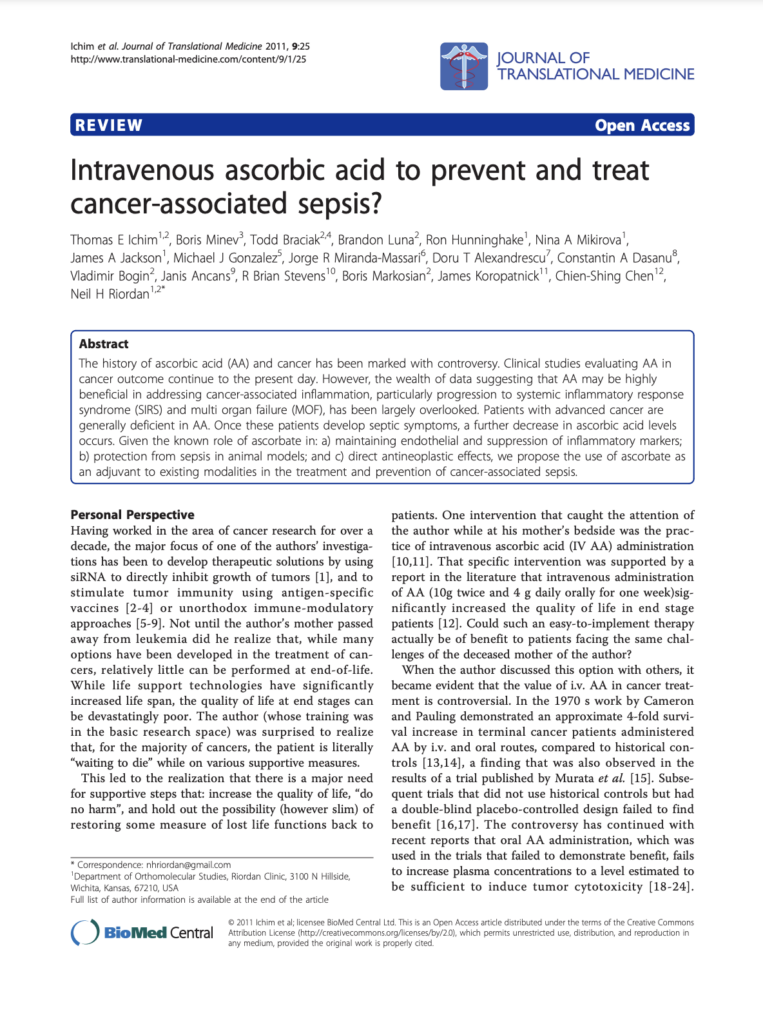
3/1/2011 J Transl Med. 2011 Mar 4;9(1):25 Ichim TE, Minev B, Braciak T, Luna B, Hunninghake R, Mikirova NA, Jackson JA, Gonzalez MJ, Miranda Massari JR, Alexandrescu DT, Dasanu C, Bogin V, Ancans J, Stevens RB, Markosian B, Koropatnick J, Chen CS, Riordan NH. The history of ascorbic acid (AA) and cancer has been marked…
Anti-angiogenic effect of high doses of ascorbic acid.
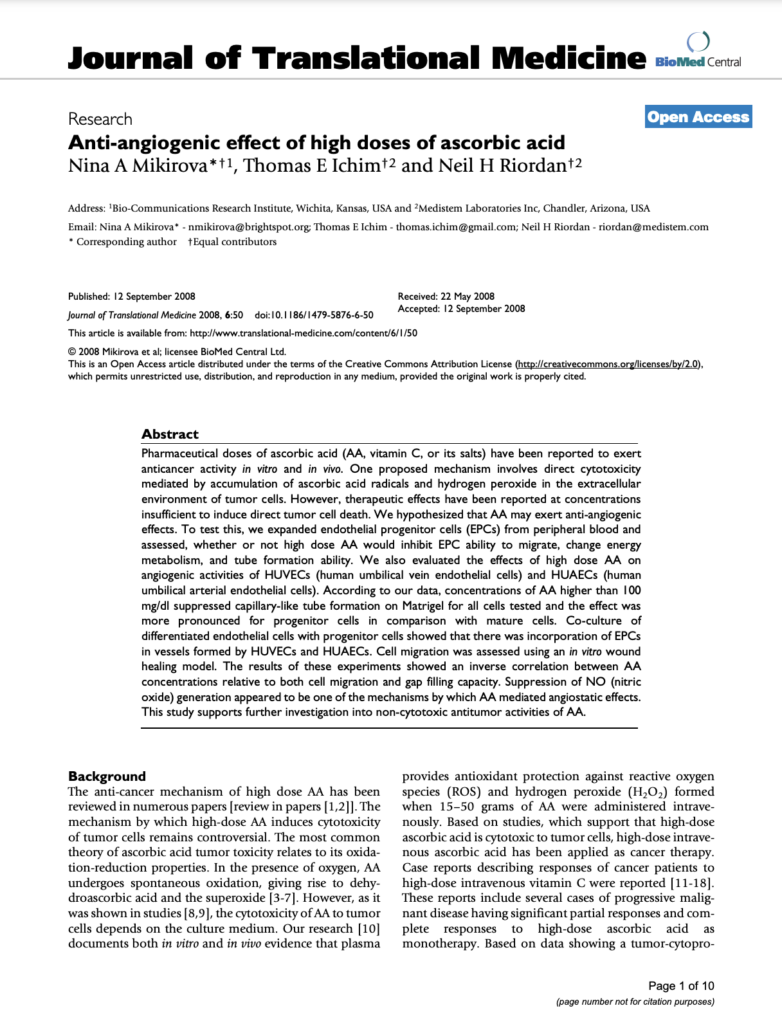
9/1/2008 J Transl Med. 2008 Sep 12;6:50 Mikirova NA, Ichim TE, Riordan NH. Pharmaceutical doses of ascorbic acid (AA, vitamin C, or its salts) have been reported to exert anticancer activity in vitro and in vivo. One proposed mechanism involves direct cytotoxicity mediated by accumulation of ascorbic acid radicals and hydrogen peroxide in the extracellular…
A pilot clinical study of continuous intravenous ascorbate in terminal cancer patients.
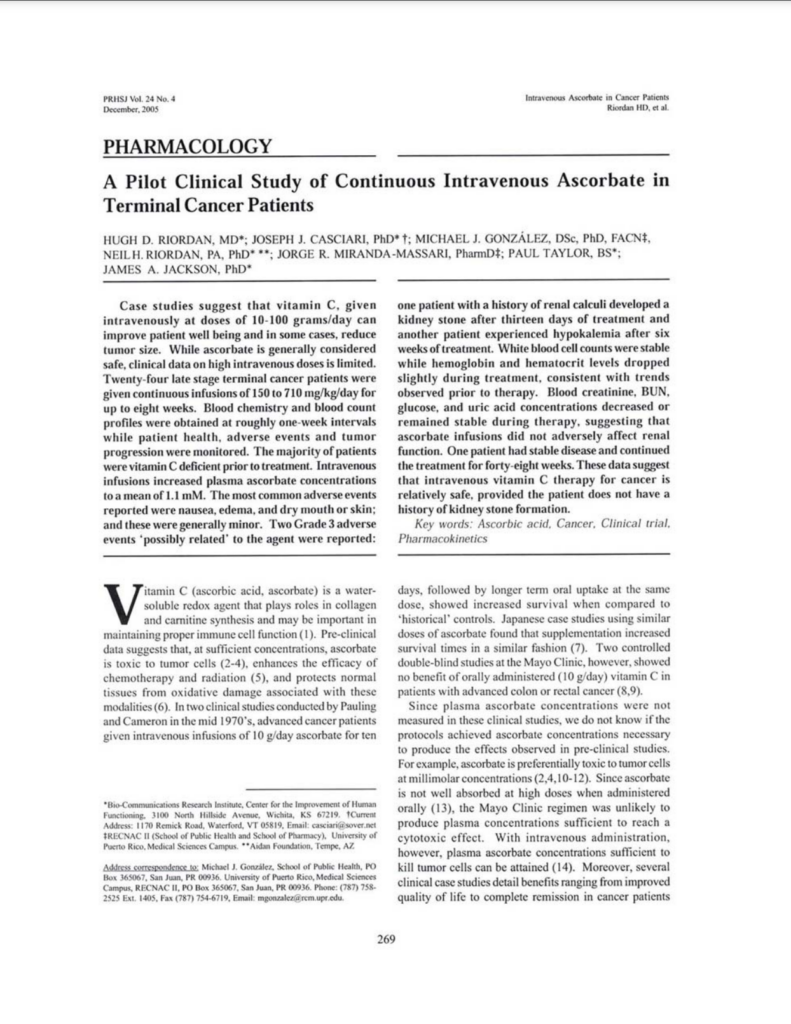
12/1/2005 P R Health Sci J. 2005 Dec;24(4):269-76 Riordan HD, Casciari JJ, González MJ, Riordan NH, Miranda-Massari JR, Taylor P, Jackson JA. Case studies suggest that vitamin C, given intravenously at doses of 10-100 grams/day can improve patient well being and in some cases, reduce tumor size. While ascorbate is generally considered safe, clinical data…
